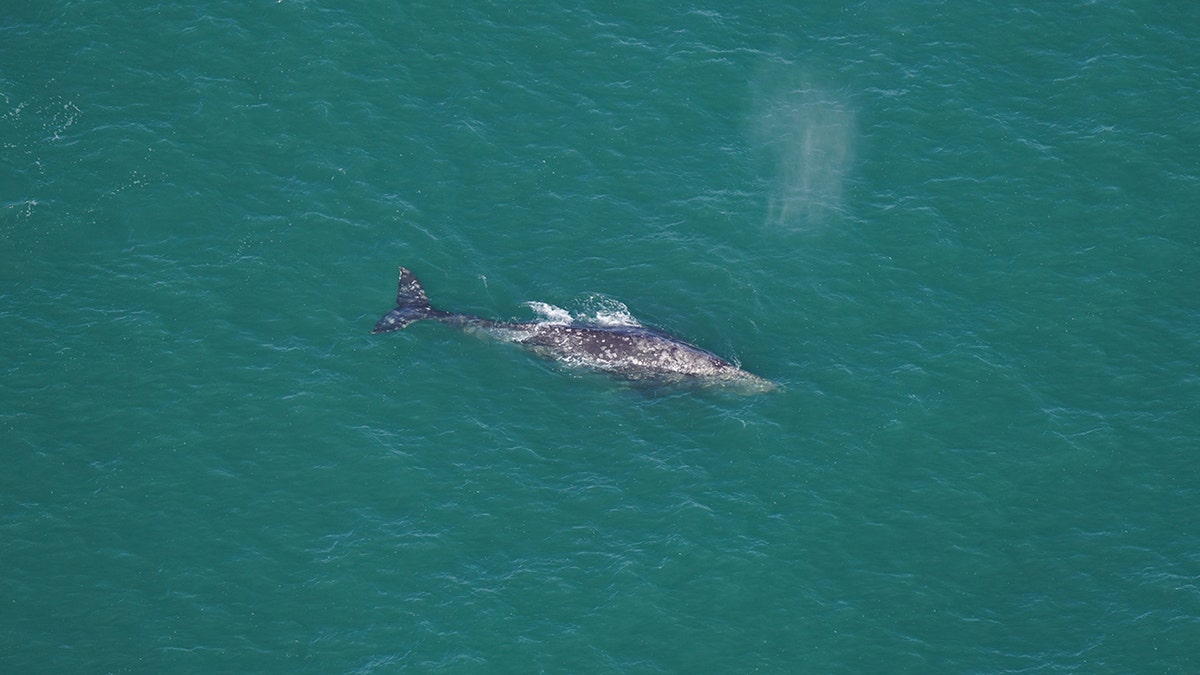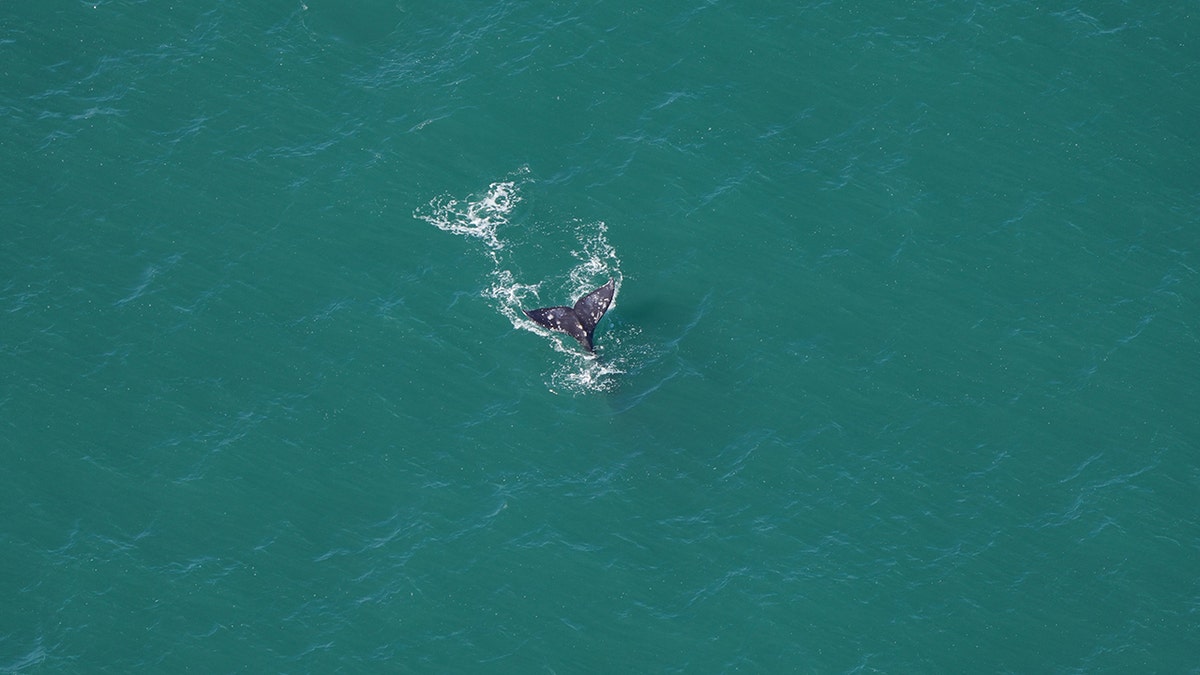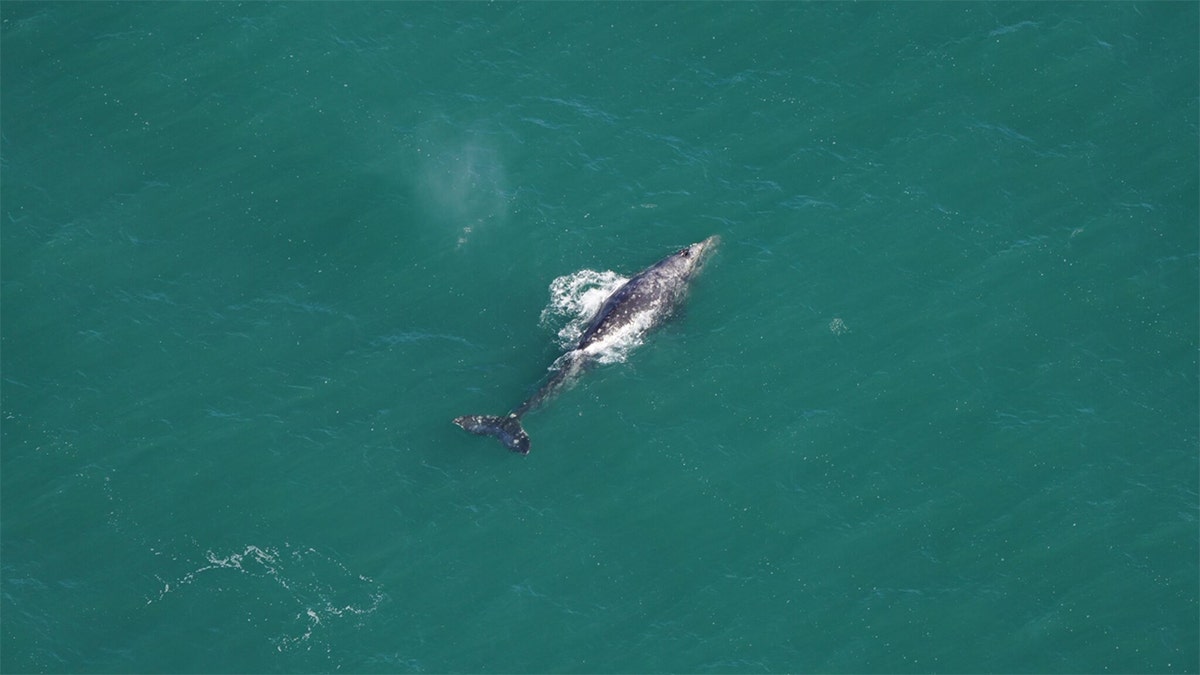Scientists from the New England Aquarium (NEA) in Boston were flying off the coast of Nantucket on Friday when they spotted a leviathan that had been extinct for more than 200 years: a gray whale.
The team of scientists was flying about 30 miles south of Nantucket when they spotted the rare whale.
As the whale continued to dive and resurface as if feeding, the aerial surveillance plane continued to circle the area for 45 minutes, giving scientists time to take photos and make sense of it. to what they saw.
The team reviewed the footage together and confirmed that they had seen a gray whale.
TWO WHALE WASHED IN VIRGINIA BEACH A DAYS OF ANOTHER: REPORT

Scientists at the New England Aquarium in Boston spotted a gray whale off the coast of Nantucket on Friday. (New England Aquarium)
“I didn't want to say out loud what it was, because it sounded crazy,” said NEA research associate Orla O'Brien.
O'Brien works at the Anderson Cabot Center for Ocean Life and has been conducting aerial surveys for 13 years.
Research technician Kat Laemmle was with O'Brien on the plane when O'Brien showed her photos as the whale dove underwater.
Baby right whale dies after ship collision, fewer than 360 remain alive

Scientists at the New England Aquarium in Boston spotted a gray whale off the coast of Nantucket on Friday. (New England Aquarium)
“My brain was trying to process what I was seeing, because this animal shouldn't really exist in these waters,” Laemmle said. “We laughed because it was wild and exciting to see an animal that disappeared from the Atlantic hundreds of years ago.”
Although gray whales are not typically found in the Atlantic, they are regularly seen in the North Pacific, according to NEA officials.
The whales are described as having no dorsal fin but sporting gray and white mottled skin and a dorsal hump. As the bump moves down to the tail, a series of pronounced ridges may be visible.
Whale dies after straying into Osaka Bay, Japanese officials confirm

Scientists at the New England Aquarium in Boston spotted a gray whale off the coast of Nantucket on Friday. (New England Aquarium)
Although it disappeared from the Atlantic Ocean in the 18th century, the species is making a comeback in the region. In fact, five gray whale sightings have occurred in Atlantic Ocean and Mediterranean waters over the past 15 years, including off the coast of Florida in December 2023.
The one spotted off Nantucket on Friday is believed to be the same gray whale seen off the coast of Florida in December.
Scientists say these strange sightings can be attributed to climate change, explaining that the Northwest Passage, which connects the Atlantic and Pacific Oceans across the Arctic Ocean to Canada, has been ice-free during recent summers. years, partly due to rising temperatures. worldwide.
Sea ice generally limits where gray whales can travel, because they are unable to break through the thick winter ice that blocks passage, the aquarium said.
CLICK HERE TO GET THE FOX NEWS APP
But with less ice in the passage during the summer months, gray whales could move into areas not visited by the species in centuries.
“Even though we expect to see humpback whales, black whales and fin whales, the ocean is a dynamic ecosystem and you never know what you're going to find,” O'Brien said. “These sightings of gray whales in the Atlantic remind us how quickly marine species respond to climate change, if given the chance.”
